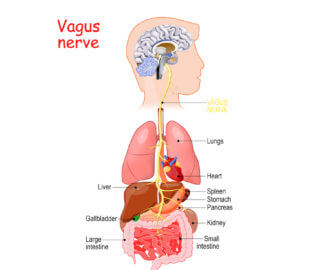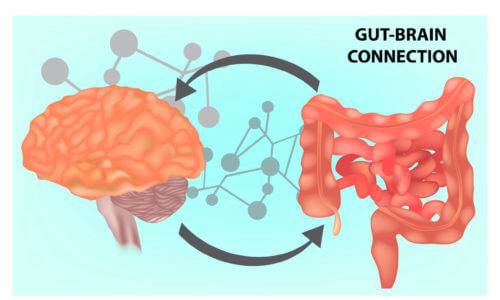Hypnotherapy for IBS: Can It Really Help?
Hypnotherapy is becoming a popular alternative approach to treating irritable bowel syndrome. The question is, is hypnotherapy for IBS an effective treatment option?
Let’s find out.
What is Irritable Bowel Syndrome (IBS)?
Irritable Bowel Syndrome is a long-term gastrointestinal disorder affecting the large intestine. When you have IBS, you experience bloating, pain, abdominal cramping, constipation, diarrhea, or both.

IBS Pain
The primary cause of IBS remains unknown.
Some foods can trigger IBS flare-ups. You need to avoid fried and fatty foods, high-fiber foods, and foods containing alcohol, chocolate, or sorbitol.

Paying attention to diet is important in treating IBS
Interestingly, even emotional stress can trigger an attack. In fact, approximately 80% of people with IBS have anxiety, depression, and somatization (a condition where psychological distress shows as physical symptoms). The higher the stress level, the worse the IBS symptoms become. Hypnotherapy is very effective for treating anxiety and depression. Acupuncture is also helpful in treating anxiety.
Experts theorize that chronic stress activates the body’s immune system. This then affects the gut directly through the vagus nerve and indirectly by releasing inflammatory proteins called cytokines. These interactions intensify the symptoms.

Vagus Nerve
There’s no single treatment for IBS. You can try out different treatment modalities and see what works for you.
Hypnotherapy for IBS: How Does It Work?
People with IBS have visceral hypersensitivity. This means their gut has sensitive nerve endings, interpreting typical gut sensations as pain.
Hypnotherapy works by establishing communication in the gut-brain axis. When someone undergoes hypnotherapy for IBS, it conditions the gut to be less reactive to negative emotions.

Gut-Brain Connection
Hypnotic suggestions teach them how to calm their autonomic body processes. For instance, during stressful situations, they can envision their gut to be strong and calm like the ocean. This, in turn, helps them control gut function in a way and reduce IBS symptoms.
Psychologically, hypnotherapy can be empowering. Through a series of sessions, they can have new coping mechanisms they can use during uncomfortable flare-ups.
What Does Research Say about hypnotherapy for IBS?
Hypnotherapy has been shown to help address several health issues such as pain, anxiety, and depression.
When it comes to IBS, a significant number of studies have shown that hypnotherapy is effective in alleviating symptoms− offering both short-term and long-term relief. Individual and group-based hypnotherapy can help manage the symptoms.
In 2015, a study in the Alimentary Pharmacology and Therapeutics reported that almost 70% of 1000 people with IBS showed remarkable improvement after 12 hypnotherapy sessions. Their abdominal pain was reduced and so did their feelings of anxiety.
More recently, a Dutch study showed that 40 to 50% of the patients who received hypnosis felt significant relief of IBS symptoms at 3 months and at 12 months. Another study showed that the beneficial effects can be seen even after 5 years.
As you can see, there is solid evidence on the therapeutic effect of hypnotherapy for IBS.
Moreover, hypnotherapy offers several advantages, as does meditation and mindfulness.
First, the effects can be felt almost immediately. Second, hypnotherapy is a safe and non-invasive form of treatment. Third, it doesn’t have harmful side effects like pharmacologic treatment. Lastly, hypnotherapy can address both the patient’s physical and psychological symptoms. Hypnotherapy is also very effective for weight loss and sleep.
If you’re suffering from IBS, consider looking for a certified hypnotherapist to help you. Today, it’s more convenient because you can have your hypnotherapy sessions online via Zoom. Carla Chalah of Hemisphere Hypnotherapy in Sudbury, Massachusetts, works with clients all over the world, especially helping people cope with covid-19 anxiety.


